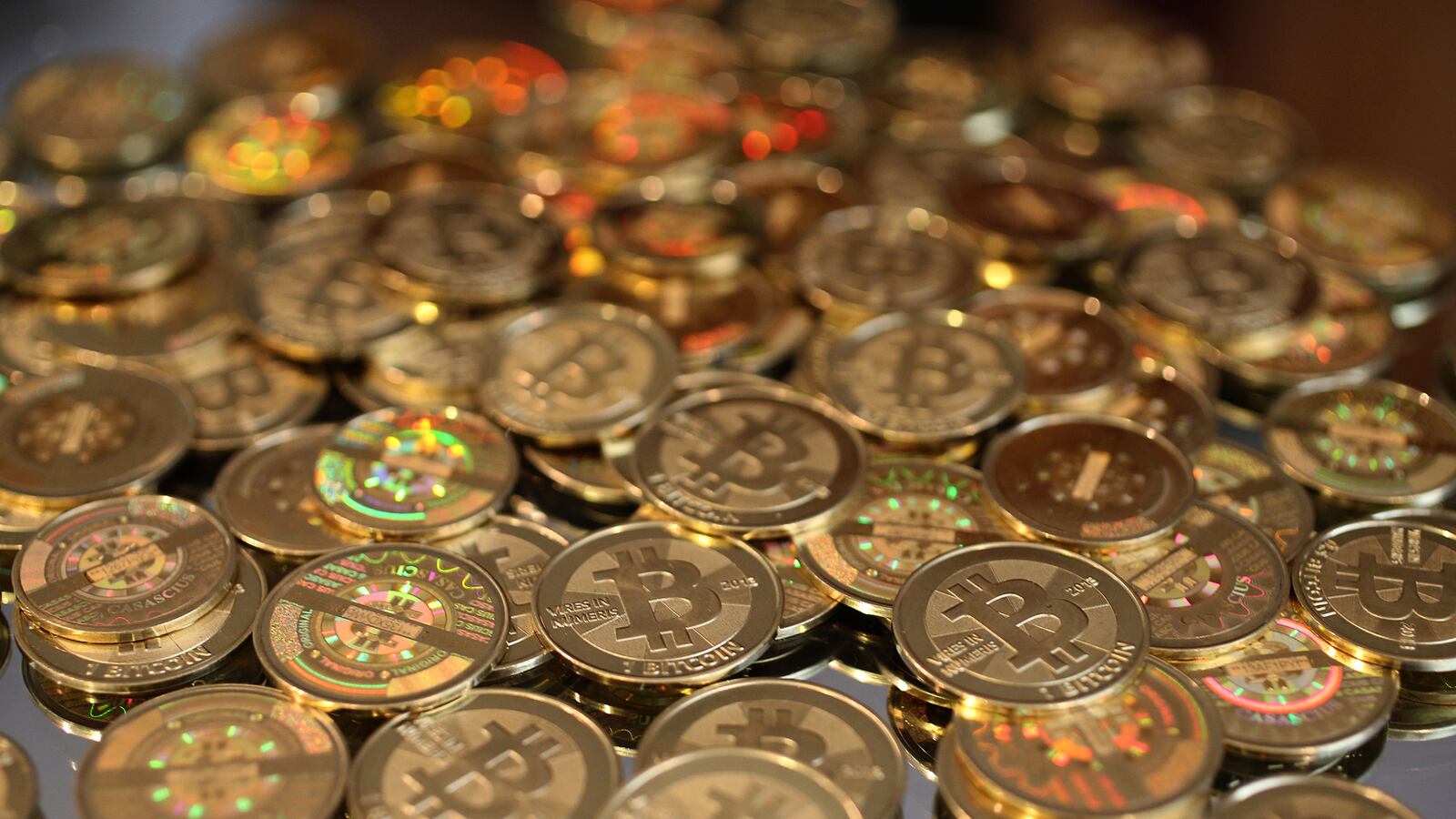Late last month, millions of dollars disappeared from the pockets of thousands of investors in a single incident. It wasn’t a bank robbery or the collapse of a financial house of cards. Instead, a virtual Bitcoin exchange vanished.

The GBL Bitcoin exchange held as much as $4.1 million USD worth of the digital currency for its customers. But on October 26, it was taken offline.
There were plenty of warning signs. The company registered its domain in Hong Kong, but was based in China. It never obtained the licenses to run a financial services firm. The site lifted some of its content from elsewhere on the web and used a Gmail address instead of a corporate email domain.
But despite these red flags, which were caught by traders in online forums, around 1,000 customers in mainland China used the exchange, which reportedly barraged online communities with promos offering fee waivers to new users.
This is the latest questionable result of the burgeoning online marketplace for bitcoins, which started trading in 2009. The world’s only unregulated currency, it enables for decentralized peer-to-peer trading. It has gained popularity among those who are distrustful of the financial industry and of government regulation—or those attracted to a transaction fee that’s much lower than credit cards. Plus, transactions can remain anonymous, which is a boon to users who want to buy from online black markets—or hire hitmen).
Users can generate (or “mine”) their own bitcoins by using their computers’ processing power to crack complex mathematical problems. Those problems are getting increasingly complicated as more of the currency is generated, however, and there is a limit to the number of bitcoins that will ever be in circulation. Some enthusiasts have dedicated computers for mining the coins or partner with their friends to split the work. Alternatively, they can buy and sell bitcoins through online marketplaces to exchange them for other, real-world currencies (just as you can buy and sell corporate stock for dollars).
In September, many users reportedly held back from trading on GBL due to a rising value and GBL’s cash flow problems. Early last month, GBL capped the amount of money users could withdraw.
Then, on October 26, GBL shut down. Several people stung by the scam reportedly went to the police. Some furious customers even reportedly tracked down the office listed on the GBL website, but it was a fake address.
When GBL registered its domain in May of this year, the value of Bitcoin had just dropped by half from an April peak of around 1,400 yuan ($266, according to data compiled by Mt. Gox, one of the world’s largest trading exchanges). It was the perfect time for scammers to make a mark, with a huge buzz around Bitcoin and its relatively low value compared with a few weeks before.
By the time GBL vanished, the value had steadily risen back to 1,280 yuan. By Wednesday, the value of a bitcoin had reached an all-time high of more than $400.
The currency is a hot commodity in China right now. Bitcoin users are trading up to 1.1 billion yuan ($180.5 million) every day, and the BTC China exchange became the world’s busiest last week, with more than 109,841 bitcoins changing hands. The CEO of BTC China, Bobby Lee, said that he feels Chinese users see bitcoins as a commodity. “I think the Chinese really look to Bitcoin as an excellent digital store of value, sort of like the new electronic version of gold,” he said. “The Chinese like the idea of buying bitcoins to allow for deferred gratification from their savings.”
The GBL debacle is not the first time those who placed their faith in Bitcoin have fallen victim to scammers or disappearing exchanges. Mt. Gox suffered a hack in June 2011, when a thief grabbed 2,643 bitcoins. A bug on the exchange a few months later destroyed 2,609 bitcoins ($8,115.12 at the time), though it later reimbursed customers.
Just this week, the BitFunder exchange announced it is shutting down. Trading has ceased and all users will receive their bitcoins back by early December. Last month, BitFunder banned American users from trading, seemingly in response to moves by the U.S. Securities and Exchange Commission to crack down on Bitcoin and other virtual currencies.
On a day-to-day basis, however, Bitcoin proponents are more likely to be concerned with losing money to vanishing exchanges or hackers. In one of the more notorious scams, Trendon Shavers allegedly made off (PDF) with an estimated 263,024 bitcoins in a Ponzi scheme when he shut his virtual hedge fund, Bitcoin Savings & Trust, last year. At today’s rates, that would be worth around $10.5 million. And, earlier this month, an Australian teen who ran a Bitcoin site said he had lost more than 4,100 of his customers’ bitcoins to a hacker.
In a study published this year (PDF), Southern Methodist University assistant professor Tyler Moore and Carnegie Mellon University assistant professor Nicolas Christin found 18 of the 40 exchanges they’d monitored over three years had closed. Only a third claimed to have reimbursed customers, and 13 closed without warning. The lower the volume of transactions, the more likely it was that an exchange would shut down, the pair said.
But given the recent surge in value, enthusiasts don’t seem deterred from investing in the cryptocurrency. As long as the risk is unregulated, it seems to be a bull market for Bitcoin.






